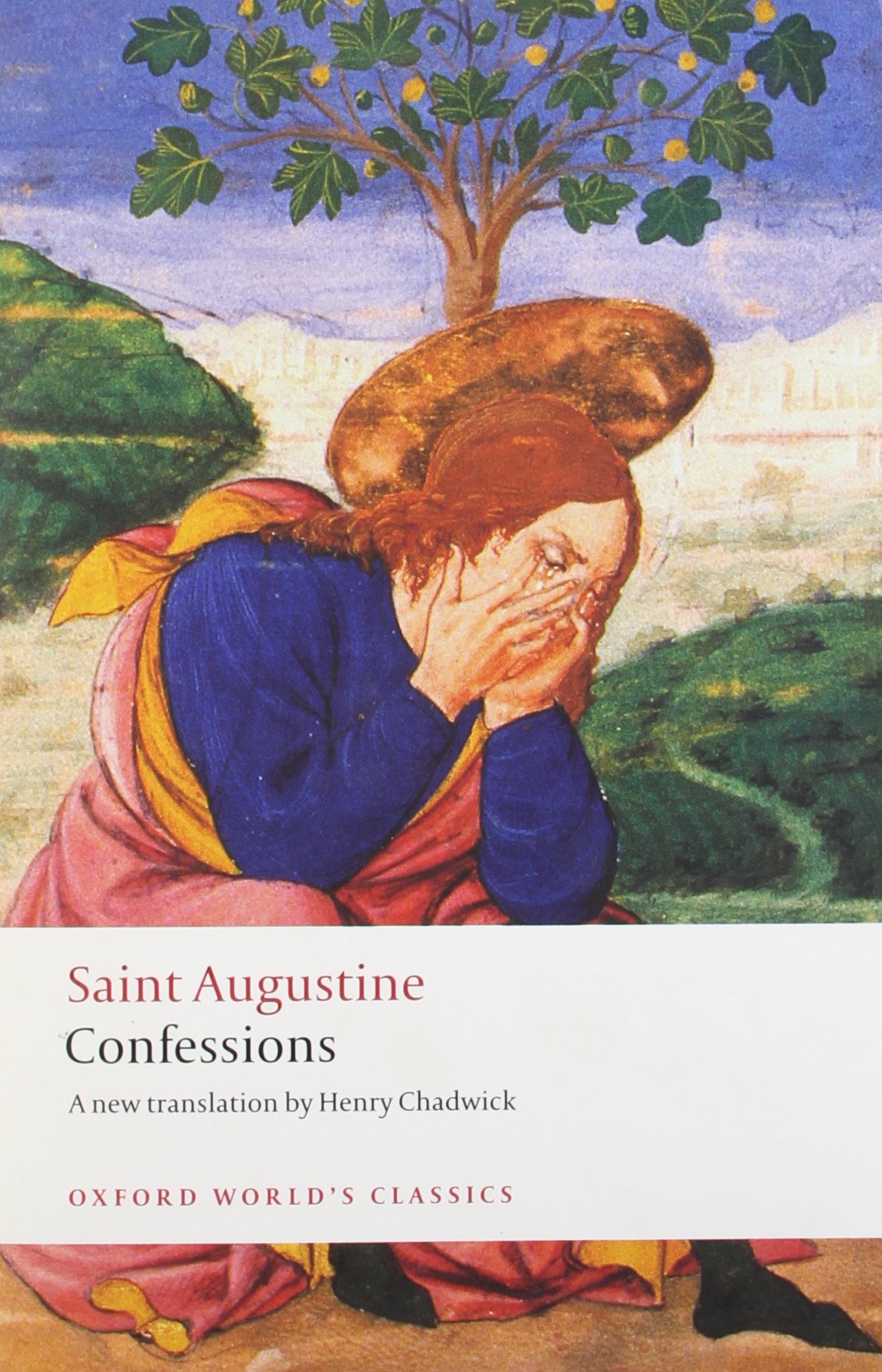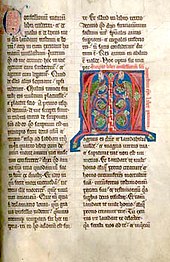Confessions (St. Augustine)
The Confessions (Latin Confessions ) are autobiographical reflections of the Christian church teacher Augustine. They originated in the years 397-401 CE,. Augustine was then Bishop of Hippo Regius in the Roman province of Numidia, now Annaba in Algeria.
Content
As Augustine noted later, the title word has two meanings: Confessio peccati so " confession " and Confessio fidei ie " creed ". Often a third meaning is still interpreted into: the Confessio laudis, the praise of God. Confiteri means its literal sense admit solemnly profess, proclaim praise. A stepping out from the reserved awareness of the Interior to the Public. Theme of the work are the errors and the completion of the quest for union with God, as expressed in the famous sentence to start work:
The Confessions describe in a kind of self-reflection phases of the intellectual development of Augustine. This is particularly evident in praise to God, form the framework for the whole Confessions. The Confessions are divided into 13 books. Books 1-9 contain retrospective considerations until the year 387 Historical and political events of those days faded Augustine, at the time the Constitution bishop, and focuses on the development of his thinking, searching and questioning. In the 8th chapter of the 10th book there is a description of his state of mind at the time of writing, his personal account of his " One sinner ", but also the psychological treatise on the memory whose passage
" Et eunt homines mirari alta montium et ingentes Fluctus maris et latissimos lapsus fluminum et oceanic ambitum et gyros siderum, et relinquunt se ipsos. - And there go towards the people, to admire the heights of mountains, the huge waves of the sea, the wide -flowing streams, the vastness of the ocean and the paths of the stars and forget about yourself "
Francesco Petrarca revealed on Mont Ventoux his poetic vocation. In the form of a soliloquy, the 11th book contains philosophical observations over time. In the books 12 and 13 Augustine interprets the biblical story of creation as praise to the " glory of God ".
The work begins with the personal development of Augustine toward the Christian faith and contains over bottom always more philosophical reflections, especially on the subject of time. On the basis of the Confessions can the conflict between Manichaeism and Neoplatonism and Christianity understand, which is also reflected in the biography of Augustine.
Genus
The Confessions are considered first autobiography, which is not only a self-portrait, but has decidedly historic trains. As gattungskonstitutiv applies the continuous representation of a life context. In addition, the work can also be interpreted as a praise and song of praise to God. At the same time it is an advertisement for Christianity and is in the tradition of philosophical promotional literature of the Sophists ( name: Protreptikos ). The basic motive of Augustine 's deep gratitude to the Divine Providence, which has prevailed wonderful about his life. At the same time it seems as if Augustine advertise not only for Christianity, but also provide life coaching for devout Christians. This intention is evident when he certain criticisms that caused him problems, such as, refutes the form of God and the question of the duality of "good" and "evil" in detail. The confess his own guilt and the references to God's grace to make the reader hope and encourage him in his quest to be a good Christian.
Reception
Jean -Jacques Rousseau took Augustine as a model when he called his confession Confessions.
Jacques Derrida refers to the term " Zirkumfession " (in the same text ) on both Augustine's, as well as Rousseau's Confessions.
German translations
There are at least 25 German translations of the Confessions. Among the most important are:










